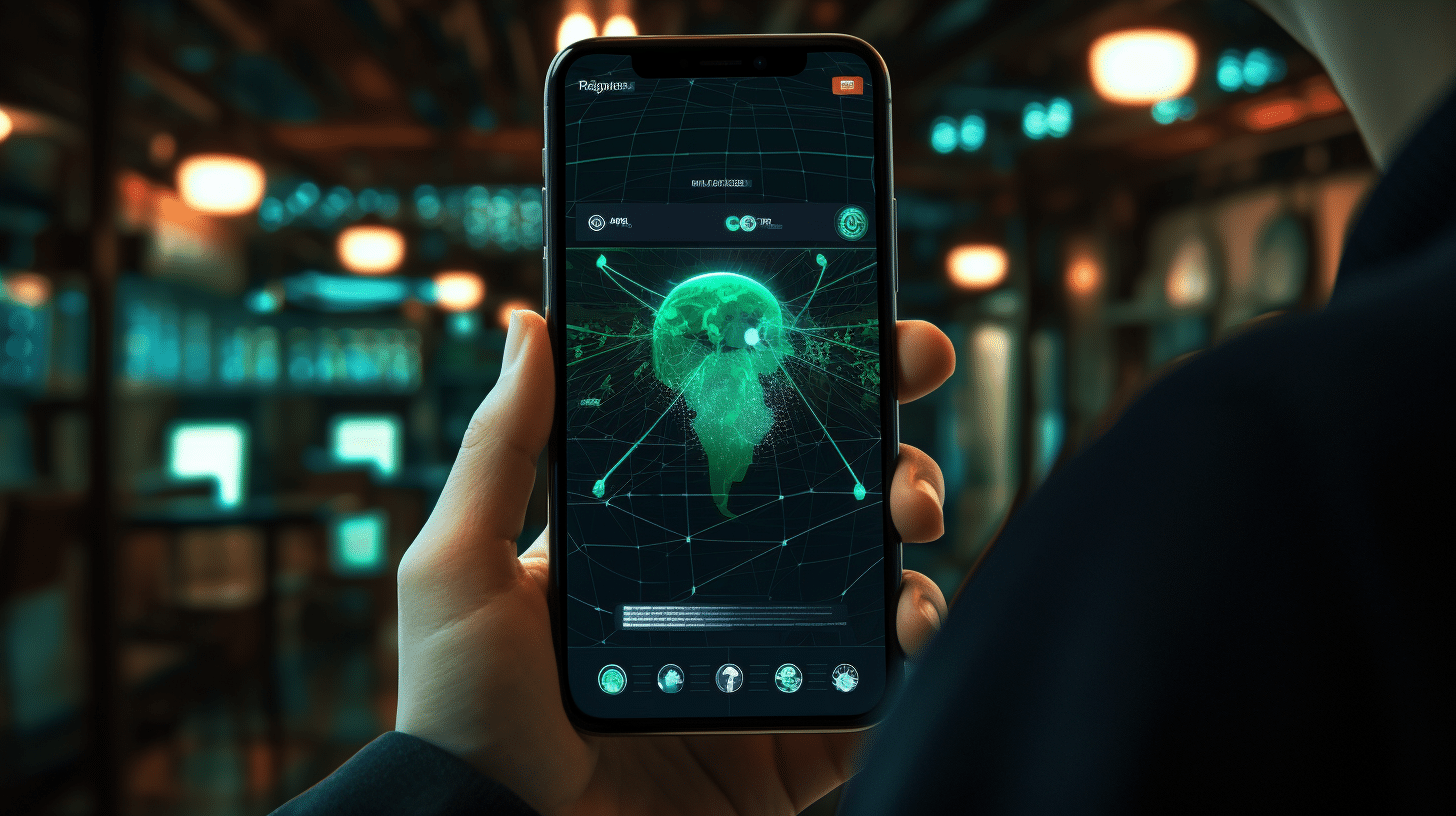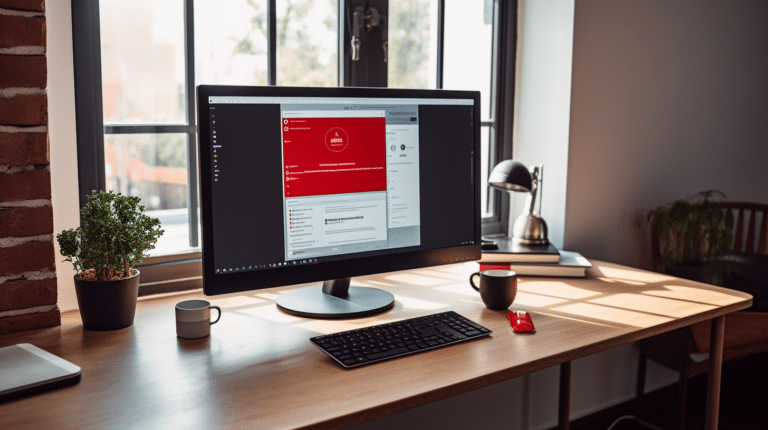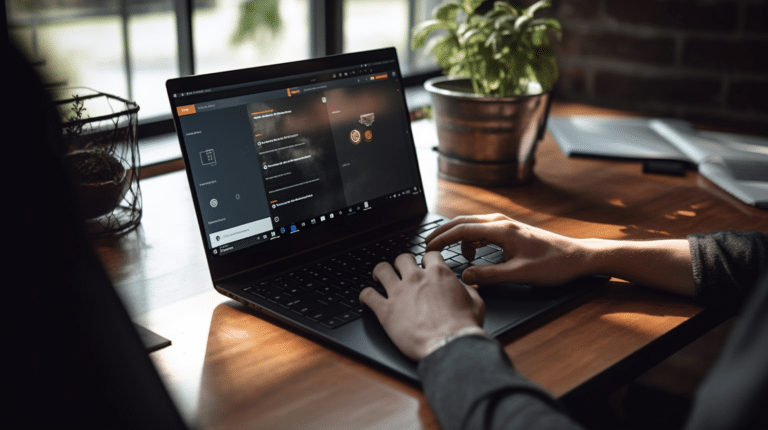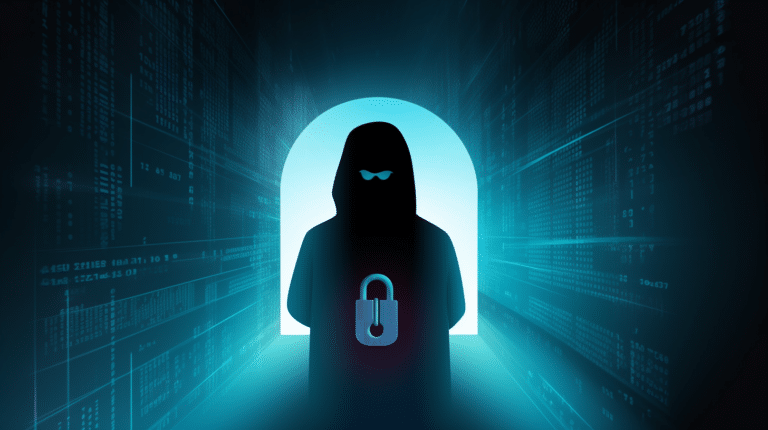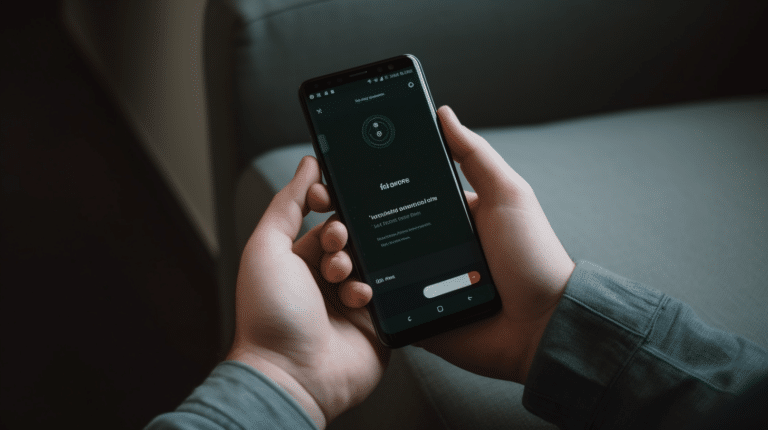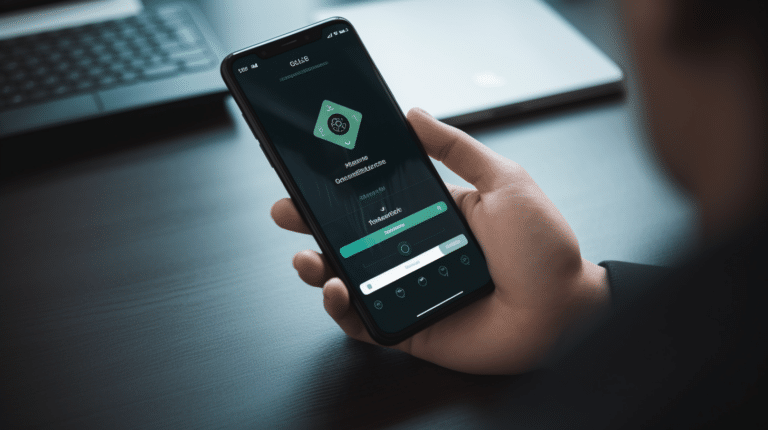With the increasing need for privacy and security on the internet, virtual private networks (VPNs) have gained popularity as an essential tool for online protection. VPNs provide an encrypted connection between your device and a remote server, effectively hiding your IP address and ensuring that your data remains private, even on public Wi-Fi networks. However, as people become more reliant on smartphones and other mobile devices, a question arises: does a VPN work on cellular data?
The answer is yes; a VPN can work on cellular data, ensuring that your mobile browsing experience remains protected. When connected to a VPN, your smartphone encrypts your data and sends it through a secure tunnel, making it difficult for hackers and other malicious actors to intercept your information. Additionally, using a VPN on cellular data can help you bypass geo-restrictions and website blocks, giving you more freedom to access content on your mobile devices. However, it should be noted that using a VPN on cellular data can increase your data usage by 4-20%, depending on the protocol used.
Key Takeaways
- VPNs can work on cellular data, providing security and privacy for mobile browsing
- Connecting to a VPN on mobile devices can bypass geo-restrictions and website blocks
- Using a VPN on cellular data may increase data usage by 4-20% depending on the protocol employed
Understanding VPN and How It Works
A VPN (Virtual Private Network) is a technology that provides an extra layer of security and privacy while using the internet. It works by creating a secure, encrypted tunnel between your device and a remote VPN server. This ensures that your data is protected from cybercriminals, government surveillance, and other malicious entities.
One primary function of a VPN is to encrypt your data, making it almost impossible for unauthorized parties to read or access. By using various encryption protocols, VPNs ensure the security and privacy of your online activities. Some of the commonly used VPN protocols include OpenVPN, IPsec, and WireGuard.
When you connect to a VPN server, your IP address is replaced with the server’s IP address, masking your true location and effectively anonymizing your device. This helps in maintaining your privacy and evading online tracking. Additionally, by connecting to a server in a different country, you can bypass geo-restrictions and unblock restricted content.
VPNs also work seamlessly with cellular data networks. Just like with Wi-Fi networks, using a VPN on cellular data ensures the same level of encryption and security. However, keep in mind that using a VPN may lead to a slight increase in mobile data usage, depending on the protocol used. This means that a VPN can’t help you bypass your mobile carrier’s data caps or provide unlimited data while roaming.
In summary, VPNs are a powerful tool for enhancing your online security, privacy, and freedom. By encrypting your connection, hiding your IP address, and allowing you to bypass geo-restrictions, a VPN provides a secure and private experience on both Wi-Fi and cellular data networks. Remember to choose a reputable VPN service with robust security features and a diverse server network to ensure the best possible experience.
VPN On Mobile Devices
Android VPN Use
Using a VPN on an Android device can help enhance online privacy and security. To connect your Android device to a VPN, you can follow the steps provided by Google’s support guide. Android 9 and up support connecting to VPNs directly through the device’s settings. This allows you to access your school or company’s network remotely, ensuring a secure connection.
iOS VPN Use
Similar to Android devices, iOS devices also support VPN usage. To set up a VPN on an iPhone or iPad, go to Settings > General > VPN. You can add a new VPN configuration by tapping on “Add VPN Configuration” and entering the required information. Once configured, simply toggle on the VPN connection whenever needed. VPNs on iOS devices help protect your data and ensure privacy while browsing or using apps.
VPN Apps on Mobile Phones
There are numerous VPN apps available for both Android and iOS devices. These VPN apps encrypt the data sent between your mobile device and the VPN server, providing an added layer of security to your mobile data usage. Although using a VPN on your mobile device does increase mobile data usage by 4-20% depending on the protocol, the benefits of privacy and security often outweigh the minimal data increase.
Some popular mobile VPN apps are Surfshark and NordVPN, with Surfshark being recognized as the best budget mobile VPN and NordVPN praised for reliability. These apps provide a convenient way to protect your data and enhance privacy while using your mobile device.
Using VPN on Cellular Data
Pros and Cons of VPN on Cellular Data
Using a VPN on a mobile data connection can offer numerous benefits while also presenting some challenges. One of the main advantages is the enhanced security provided by a VPN, which encrypts your data and keeps it private even when using an insecure cellular network. Additionally, VPNs allow users to bypass geographical restrictions and access content that may be blocked in their region, giving them a more open and diverse browsing experience.
However, there are some downsides to consider as well. The most significant concern is the increased data consumption that comes with VPN usage. As NordVPN states, using a VPN on your cell phone can increase mobile data usage by 4-20%, depending on the protocol you use. This means that using a VPN may not be an ideal solution for those with limited data plans or those trying to stay within their data cap.
Bandwidth Throttling and VPN on Cellular Data
Bandwidth throttling is a process where ISPs intentionally slow down the internet speeds of their users, usually to manage network congestion or to limit data consumption on certain plans. Using a VPN can help you bypass such restrictions and maintain a more consistent mobile data connection.
By encrypting your data and masking your IP address, VPNs make it more challenging for ISPs to identify your internet traffic and apply any potential throttling. This leads to a more consistent and reliable connection, ensuring a better overall online experience when using cellular data.
Data Consumption of VPN on Cellular Data
As discussed earlier, using a VPN on your mobile data connection will result in increased data consumption. This increase is attributed to the encryption process, which adds extra data to your connection and results in higher usage. The exact amount of additional data usage will depend on the VPN protocol used, but it generally ranges from 4-20%of your regular mobile data usage.
To manage this increase in data consumption, users need to be aware of their data plan limits and track their mobile data usage accordingly. Some VPN apps come with built-in data usage monitoring tools, while others may require the use of third-party apps to track consumption. It’s essential to balance the benefits of a VPN, such as enhanced security and content access, with the potential drawbacks of increased data usage when making a decision about using a VPN on cellular data.
Mobile Networks and VPN
A Virtual Private Network (VPN) is a technology that allows users to establish a secure and encrypted connection over the internet. In the context of mobile devices, VPNs can also be used on cellular networks, offering users privacy and security while browsing through their mobile carrier. This includes popular networks like LTE and EDGE, typically provided by mobile providers such as Verizon, AT&T, T-Mobile, and others.
Using a VPN on cellular networks offers various benefits. First, it can help protect users from data breaches and cyber threats, specifically when connected to public Wi-Fi networks. Since mobile devices often switch between Wi-Fi and cellular connections seamlessly, employing a VPN ensures that your data is encrypted even when switching networks. It can also help bypass geo-restrictions and access content not available in your region.
However, there are some considerations to keep in mind when using a VPN on mobile networks. First, a VPN can increase your mobile data usage by 4-20% depending on the protocol you use. This may lead to reaching your monthly mobile data cap faster, particularly for users with limited data plans. Additionally, while VPNs can work on most cellular networks, individual mobile carriers may have different rules or restrictions on VPN usage.
It is essential to choose a reliable VPN service and ensure that it works well with your mobile provider. Some VPNs may be more compatible with specific carriers, while others may offer better performance on certain cellular network types like LTE or EDGE. To get the best results, research and test different VPN services on your cellular network, and consider factors such as speed, security, and compatibility with your mobile device.
In conclusion, using a VPN on cellular networks is possible and provides numerous benefits, such as enhanced security and privacy. However, it is crucial to consider the possible increase in data usage and compatibility with your mobile provider while selecting the right VPN service. By doing so, you can enjoy a secure and private browsing experience on your mobile device, no matter the type of cellular network you are connected to.
Security and VPN on Cellular Data
Privacy with VPN on Cellular Data
A VPN (Virtual Private Network) is a useful tool for ensuring security and privacy while using cellular data. By encrypting your internet connection, VPNs prevent unauthorized access to your sensitive data. Using a VPN on cellular data ensures that your online activities remain confidential, even when using a mobile network.
On a cellular network, VPNs hide your IP address, offering an additional layer of privacy protection. This prevents cybercriminals, advertisers, and other parties from tracking your online activities. Moreover, VPNs are also useful in bypassing geo-restrictions, granting access to content that may not be available in certain regions.
VPNs and Public Wi-Fi
Using public Wi-Fi networks can expose you to numerous internet security risks such as data breaches and hacking. A VPN provides an extra layer of security, particularly when connected to unsecured public Wi-Fi hotspots. VPNs create a secure encrypted tunnel between your device and the VPN server, ensuring your data remains safe from eavesdroppers.
When relying on public Wi-Fi networks, it’s crucial to use a VPN that offers robust security features. Top-tier VPN services, like ExpressVPN and CyberGhost, often provide a mix of fast connection speeds, strong encryption, and ample server locations for maximum protection.
Remember that using a VPN on cellular data can lead to increased data consumption, as it adds an encryption overhead. However, the added security and privacy benefits that come with using a VPN on cellular networks outweigh this moderate data usage increase, making it an essential tool for safeguarding your online activities.
Technology and Protocols in VPN
VPNs use a variety of protocols to provide secure and efficient access to the internet over cellular data. Understanding the main protocols is crucial for better user experience.
Understanding OpenVPN
OpenVPN is an open-source VPN protocol that offers a good balance between security and performance. It uses SSL/TLS for key exchange and can operate over UDP or TCP to provide a speedy and reliable connection. OpenVPN is highly configurable, allowing users to customize security and performance settings.
IKEv2 and Mobile VPN
IKEv2 (Internet Key Exchange version 2) is a VPN protocol designed with mobile devices in mind. It provides fast reconnection when internet connections are lost, making it an excellent choice for users who frequently switch between Wi-Fi and cellular networks. IKEv2 relies on IPsec for security and is known for its excellent performance and stability.
L2TP/IPSec and Mobile VPN
L2TP (Layer 2 Tunneling Protocol) is often combined with IPsec to create a L2TP/IPSec VPN solution. This protocol combo offers enhanced security but can be slower due to double encapsulation. L2TP/IPSec is suitable for use on mobile devices that require secure data transmissions over cellular networks.
WireGuard: A Modern VPN Protocol
WireGuard is a relatively new VPN protocol designed to offer strong security, fast connections, and ease of use. It uses modern cryptographic primitives and is built into the Linux kernel, making it a highly efficient protocol for mobile devices. WireGuard’s lightweight design and simplicity make it an appealing option for using VPNs over cellular data networks.
Censorship, Tracking and VPN
Overcoming Censorship with VPN
Virtual Private Networks (VPNs) can be a useful tool for those seeking to bypass internet censorship. By creating an encrypted tunnel between your device and a remote VPN server, VPNs allow users to access the open web without being detected by censorship systems or governments seeking to restrict online access. This means that users can access blocked websites and services, regardless of their location.
However, it is essential to be cautious, as not all VPN providers are equally trustworthy. Some may keep logs of user activity, potentially exposing users to tracking if these logs are requested by government or law enforcement agencies.
Preventing Tracking with VPN
In addition to overcoming censorship, VPNs can also help improve your online privacy by obscuring your IP address and web traffic from your Internet Service Provider (ISP) and other potential trackers. This can make it more difficult for governments, corporations, or hackers to monitor your online activities and gather information about you.
However, it is important to note that VPNs are not foolproof protection against all forms of tracking. Certain types of tracking, such as browser fingerprinting and cookies, can still identify users even when they are using a VPN. To further increase your online privacy, it is advisable to use additional tools such as browser extensions that block tracking or using privacy-focused browsers.
Key benefits of using VPNs for privacy:
- Encrypted tunnel to protect data
- Bypassing internet censorship and obfuscation
- Hiding your IP address from potential trackers
In conclusion, while VPNs can be effective tools for overcoming censorship and limiting online tracking, they are not a one-size-fits-all solution to all privacy needs. Carefully selecting a trustworthy VPN provider and combining the VPN with additional privacy-enhancing tools can help you achieve a higher level of online privacy and security.
Trusted VPN Service Providers
Using a VPN on cellular data can greatly enhance your privacy and security. This section provides an overview of two reputable VPN service providers: ExpressVPN and NordVPN.
ExpressVPN Overview
ExpressVPN is a popular choice for users looking for a reliable and speedy VPN service. It offers a blend of security, speed, and streaming capabilities which makes it suitable for browsing on both mobile data and Wi-Fi connections. With a large number of server locations and 24/7 customer support, ExpressVPN ensures a seamless and secure online experience.
Key features of ExpressVPN include:
- High-speed connections suitable for streaming, gaming, and torrenting
- Easy-to-use app for Android and iOS devices
- 256-bit AES encryption for maximum security
- Strict no-logs policy ensuring user privacy
- Access to popular streaming services like Netflix and Hulu
NordVPN Overview
NordVPN is another well-regarded VPN service, known for its emphasis on security and user privacy. It uses advanced encryption, has a strict no-logs policy, and offers features like double VPN and Onion over VPN for additional layers of security.
Some of the main features of NordVPN are:
- Over 5,000 servers across 59 countries
- Support for Android and iOS devices
- 256-bit AES encryption
- No-logs policy
- CyberSec feature to block ads and malware
- Ability to bypass geo-restrictions on streaming services
Both ExpressVPN and NordVPN provide reliable VPN services for users on cellular networks, ensuring a secure and private browsing experience.
Possible Challenges with VPN on Cellular Data
ISP Restrictions and VPN
One challenge you may encounter when using a VPN on cellular data is ISP restrictions. Some mobile carriers may block or throttle VPN connections, which can lead to slower speeds or even disconnections. This is especially true in countries with strict internet censorship or surveillance where VPN use may be discouraged or regulated. It is essential to be aware of your carrier’s policies and potential restrictions to ensure you have a seamless VPN experience on your mobile device.
Usage Cap and VPN
Using a VPN on cellular data can also result in increased data usage. A NordVPN article mentions that using a VPN can increase mobile data usage between 4-20% depending on the protocol used. This is due to the added encryption and overhead that a VPN introduces to your internet connection. As a result, when you have a limited data plan or face data caps, using a VPN can potentially lead to reaching your data cap sooner.
It’s important to keep this in mind if you frequently use a VPN on cellular data and have a limited data plan. Monitoring your data usage and choosing a VPN with lower overhead can help minimize this issue. Additionally, some VPN providers offer compression and other features to reduce data usage on their platform. If conserving your data is crucial, exploring these options can prove beneficial.
By being aware of the potential challenges in using VPNs on cellular data, you can make informed decisions and choose a VPN service that best fits your needs and circumstances. Remember to stay up-to-date with your carrier’s policies and consider your data limits when using a VPN on your mobile device.
Split Tunneling and VPN
Split tunneling is a feature in VPNs that allows you to route only specific parts of your internet traffic through the VPN while allowing the rest of your traffic to access the internet directly. This technique can be quite useful for various reasons like optimizing your bandwidth usage, accessing local network resources, and improving the performance of certain applications that don’t require a VPN connection.
VPN providers like NordVPN offer split tunneling options, making them a good choice if you need this feature. Configuring this setting is generally straightforward, as you can find it in your VPN app settings under sections labeled ‘split tunneling’, ‘whitelist’, or ‘per-app’.
Using a VPN on your device, including with cellular data, can increase your data usage by 4-20% due to the overhead introduced by the VPN protocols. However, split tunneling can help you minimize this data usage by selectively routing traffic that does not need the security or anonymity provided by your VPN. For example, you could route your browsing and streaming activities through the VPN, while allowing traffic from casual games and local file transfers to bypass the VPN entirely.
In addition to reducing mobile data consumption, split tunneling can also help alleviate bandwidth bottlenecks and optimize your overall VPN performance. By routing only the traffic you need to secure, you can reduce the load on the VPN servers and improve your connection speed.
To sum up, split tunneling is a useful feature when using a VPN on your mobile device, both for optimizing data usage and enhancing your online experience. By selectively routing the traffic you want to protect through the VPN tunnel, you can maintain a balance between security and performance. Just make sure to configure it properly and choose a reputable VPN provider that supports this feature.
Enhanced Internet Experiences with VPN
VPN and Streaming Services
Using a VPN on cellular data can significantly improve your streaming experience. A VPN helps you bypass geo-restrictions, allowing you to access a wider variety of online content, such as Netflix shows and movies not available in your region. Additionally, a VPN may lead to faster internet speeds by avoiding ISP throttling, providing a smoother and uninterrupted streaming experience.
However, it’s essential to be aware that using a VPN to access content outside of your region may violate the terms of service of some streaming platforms.
VPN and Gaming
When it comes to gaming, a VPN offers several benefits. First, it can improve your internet connection stability. By using a VPN, you will connect to a virtual service, potentially providing a more direct route to the gaming server. This can help reduce latency and lag, leading to a smoother and more enjoyable gaming experience.
Moreover, a VPN on cellular data can ensure a more secure gaming environment. It prevents malicious attacks, such as DDoS, by hiding your IP address and protecting your internet connection. With a VPN, you can game confidently knowing that your connection is secured.
Please note that while VPNs can enhance your streaming and gaming experience, they cannot guarantee consistent performance, as other factors may affect internet speed and connection quality.
Frequently Asked Questions
Can I use a VPN on mobile data?
Yes, you can use a VPN on mobile data. Most modern smartphones are compatible with VPN apps, and VPNs work the same on mobile data as they do on Wi-Fi connections source.
Is there a data limit while using VPN on cellular?
Using a VPN on cellular data will still count against your data limits on your mobile plan. While a VPN can provide increased privacy and security, it does not bypass or offer unlimited data usage source.
Why isn’t my VPN working on mobile data?
There could be several reasons why your VPN is not working on mobile data, such as network restrictions, settings issues, or VPN client compatibility. It is essential to check your device’s settings, firewall, and the VPN app’s documentation to resolve any potential issues.
Does using a VPN on cellular data consume more bandwidth?
Yes, using a VPN on cellular data can increase mobile data usage by 4-20% depending on the protocol used source. This is mainly due to the encryption process, which adds overhead to your data usage.
Is it beneficial to use VPN on cellular rather than Wi-Fi?
Using a VPN on cellular can provide the same privacy and security benefits as using one on Wi-Fi. Choosing to use a VPN on cellular versus Wi-Fi depends on your specific needs and circumstances, such as the level of trust you have in your Wi-Fi network and your data privacy priorities.
Are there specific VPNs optimized for mobile data usage?
There are numerous VPNs available that cater to mobile users, with features such as optimized protocols and servers for reduced data usage. It’s essential to research and compare different VPNs to find the one best suited for your mobile data usage needs.
